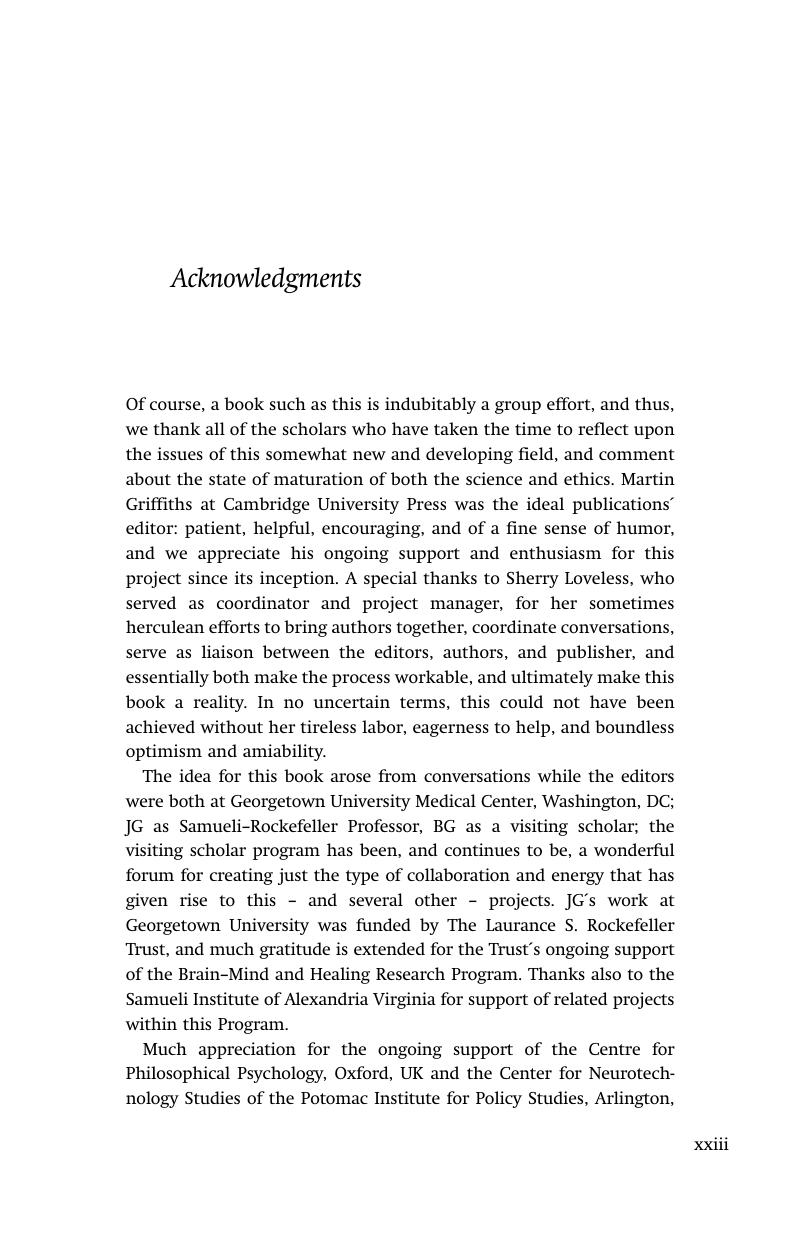Book contents
- Frontmatter
- Contents
- List of contributors
- Preface
- Acknowledgments
- Introduction
- 1 Developments in neuroscience
- 2 The origins of the modern concept of “neuroscience”
- 3 On the cusp
- 4 The mind-body issue
- 5 Personal identity and the nature of the self
- 6 Religious issues and the question of moral autonomy
- 7 Toward a cognitive neurobiology of the moral virtues
- 8 From a neurophilosophy of pain to a neuroethics of pain care
- 9 Transplantation and xenotransplantation
- 10 Neurogenetics and ethics
- 11 Neuroimaging
- 12 Can we read minds?
- 13 Possibilities, limits, and implications of brain-computer interfacing technologies
- 14 Neural engineering
- 15 Neurotechnology as a public good
- 16 Globalization: pluralist concerns and contexts
- 17 The human condition and strivings to flourish
- 18 The limits of neuro-talk
- Afterword
- Index
Acknowledgments
Published online by Cambridge University Press: 07 May 2010
- Frontmatter
- Contents
- List of contributors
- Preface
- Acknowledgments
- Introduction
- 1 Developments in neuroscience
- 2 The origins of the modern concept of “neuroscience”
- 3 On the cusp
- 4 The mind-body issue
- 5 Personal identity and the nature of the self
- 6 Religious issues and the question of moral autonomy
- 7 Toward a cognitive neurobiology of the moral virtues
- 8 From a neurophilosophy of pain to a neuroethics of pain care
- 9 Transplantation and xenotransplantation
- 10 Neurogenetics and ethics
- 11 Neuroimaging
- 12 Can we read minds?
- 13 Possibilities, limits, and implications of brain-computer interfacing technologies
- 14 Neural engineering
- 15 Neurotechnology as a public good
- 16 Globalization: pluralist concerns and contexts
- 17 The human condition and strivings to flourish
- 18 The limits of neuro-talk
- Afterword
- Index
Summary

- Type
- Chapter
- Information
- Scientific and Philosophical Perspectives in Neuroethics , pp. xxiii - xxivPublisher: Cambridge University PressPrint publication year: 2010

